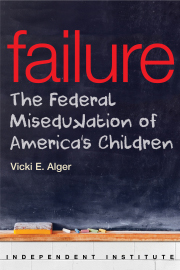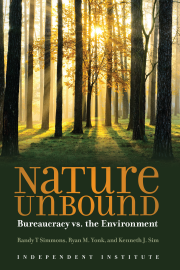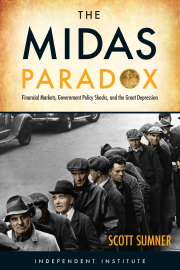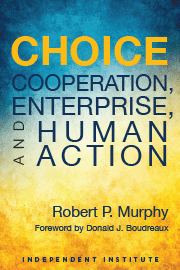The U.S. national debt grew by $2.11 trillion during President Biden’s first year in office. The U.S. government’s total public debt outstanding has ballooned to $29.87 trillion at Biden’s anniversary mark. Split between the country’s 129,931,000 households, that’s about $229,891 per American household.
On January 11, 2022, U.S. Transportation Secretary Pete Buttigieg toured the southern California ports of Los Angeles and Long Beach. That the transportation secretary would visit these two ports is no surprise. They have special importance because they process 40% of the goods imported by Americans every year.
Government regulations impose costly burdens on Americans. But because regulations are imposed on businesses, many Americans don’t directly feel their weight.
In National Federation of Independent Businesses v. Department of Labor, a majority of the Supreme Court stayed enforcement of OSHA’s COVID-19 vaccination and testing regulations. The standard issued by OSHA applies to all individuals working for employers with 100 or more employees. It requires that covered workers receive a COVID-19 vaccine or obtain a COVID test each week at their own expense and on their own time.
Social scientists who study elections tend to assume that voters have public policy preferences and that parties and candidates design their platforms to conform with those preferences. In fact, the direction of causation (mostly) goes the other way. Members of the political elite draw up their platforms, and voters adopt the policy preferences of those candidates and parties.
The uprising against the dictatorship in Kazakhstan has been crushed as one would expect—with brutal repression and the intervention of Vladimir Putin, who sent thousands of troops under the umbrella of an alliance of highly unsavory characters he controls called the Collective Security Treaty Organization.
In the Great Barrington Declaration, distinguished medical scientists from Oxford, Harvard, and Stanford universities seek an approach that focuses on the most vulnerable to COVID and lets others lead their normal lives. The declaration had scarcely been announced when National Institutes of Health director Francis Collins tapped Dr. Anthony, director of the National Institute of Allergy and Infectious Diseases (NIAID), for a “quick and devastating public takedown.”
Back in June, Federal Reserve Chair Jerome Powell said the mid-year spike in inflation was temporary, and John Williams, President of the Federal Reserve Back of New York, said he expected inflation in 2021 to be around 3% for 2021. These are the people who are in charge of managing inflation.
At the time, I said I expected 2021 inflation to be above 5%, and that we could look at the numbers at year-end to see whose estimate was closer. As you probably know, the 2021 inflation rate came in at 7%, the highest it’s been since 1982.
Last month, President Biden said inflation had peaked and would rapidly start falling. While the president does not make the policy decisions that affect inflation directly, his views do influence those policymakers who do directly affect inflation. The president’s view (as of last month, anyway) that inflation remains a transitory problem does not bode well for any resolve to invoke strong anti-inflation policies.
Politically, it is difficult to tackle inflation during an election year, because inflation-fighting policies tend to slow the economy, creating an additional impediment to the reelection of incumbents who already face substantial challenges.
Six months ago, the attitude of our inflation gurus was that it was temporary and would take care of itself. One sign of progress is that Chairman Powell now says the Federal Reserve will use its tools to combat inflation. The question is: do they actually have the resolve to do it?
Should elected members of Congress be allowed to invest in things whose value depends upon how the government spends money? Or whose growth prospects depend upon how government rules and regulations affect them?
“Mohammed Nuru, the former director of San Francisco Public Works officially pleaded guilty Thursday to a federal fraud charge,” the San Francisco Chronicle reports, “marking perhaps the most definitive development to date in the City Hall corruption scandal that has ensnared department heads and city contractors.” As this column noted in February 2020, Nuru “should have been axed years ago.”




























